
Yara Abdou, MD, discusses the racial and clinical analysis of the RxPONDER trial, the need to further investigate the factors that create racial disparities in breast cancer, and the importance of enrolling minority populations onto clinical trials.

Your AI-Trained Oncology Knowledge Connection!


Ryan Scott joined MJH Life Sciences in 2021. In addition to writing and editing timely news and article coverage, she manages OncLive's social media accounts; check us out @onclive across platforms such as LinkedIn, Facebook, X, and Instagram! She also attends conferences live and virtually to conduct video interviews and produce written coverage. Email: rscott@onclive.com

Yara Abdou, MD, discusses the racial and clinical analysis of the RxPONDER trial, the need to further investigate the factors that create racial disparities in breast cancer, and the importance of enrolling minority populations onto clinical trials.

Dario R. Roque, MD, discusses incorporating PARP inhibitors into practice for patients with homologous recombination deficient ovarian cancer, the role of PARP inhibitors for patients with homologous recombination–proficient ovarian cancer and the expanding investigation of mirvetuximab soravtansine in ovarian cancer.

Thomas J. George, MD, FACP, highlights the long-term data from the NRG-GI002 trial, the next steps for exploring subsets of patients who may benefit from the addition of pembrolizumab or veliparib to total neoadjuvant therapy, and what the use of total neoadjuvant therapy has meant for patients with stage II/III locally advanced rectal cancer.

Findings from the MASTER trial in multiple myeloma could help shape how future treatment decisions are approached for fit, transplant-eligible patients.

Investigators in the phase 2 SWOG S2107 trial are evaluating encorafenib plus cetuximab and nivolumab for patients with previously treated, microsatellite stable, unresectable, or metastatic colorectal cancer harboring a BRAF V600E mutation.

Roy S. Herbst, MD, PhD, discussed the data that supported the FDA approval of adjuvant pembrolizumab in patients with non–small cell lung cancer, highlighted the implications of the approval for the paradigm, and outlined further research opportunities.

The safety and efficacy of a combination regimen comprised of XL092 and atezolizumab is being compared with that of regorafenib monotherapy in patients with microsatellite stable or microsatellite instability–low metastatic colorectal cancer who have progressed on or are intolerant to standard-of-care therapy.
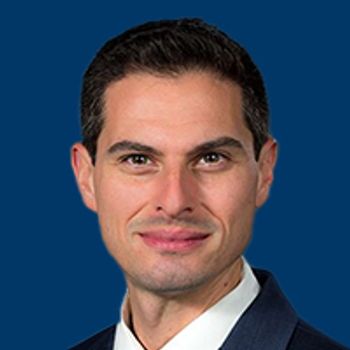
Daniel King, MD, PhD, discusses the results of an institutional review evaluating socioeconomic factors associated with disparities for germline genetic testing in patients with pancreatic adenocarcinoma, why germline testing is necessary for thi population, and how he is addressing gaps in germline testing in his own practice.

Laura Dawson, MD, FRCPC, discusses data from the NRG/RTOG 1112 trial examining the addition of stereotactic body radiation therapy to sorafenib, the implications of the data for the locally advanced hepatocellular carcinoma treatment paradigm, and next steps for research.

Amar U. Kishan, MD, discusses the safety results of MRI-guided SBRT compared with the current standard of care, highlights the benefits of using an MRI to guide radiation for patients with prostate cancer, and explains other areas where MRI-guided SBRT could explored.

Mitul Gandhi, MD, discusses the rationale of combining brentuximab vedotin, nivolumab, dacarbazine, and doxorubicin for patients with early-stage classic Hodgkin lymphoma, the key findings from part C of the SGN35-027 trial, and the next steps for investigating this combination.

Mridula George, MD, discusses the methods used to evaluate cardiotoxicity associated with adjuvant trastuzumab emtansine plus concurrent radiation therapy, and explains implications on the use of trastuzumab emtansine plus radiation in patients with early-stage HER2-positive breast cancer.
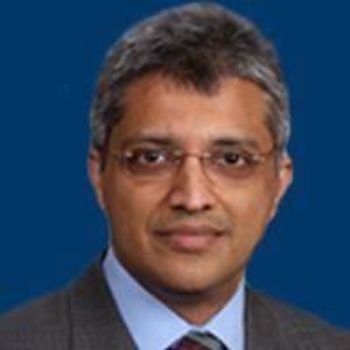
Shaji Kumar, MD, discusses the MAIA trial; key takeaways regarding the long-term safety and efficacy of daratumumab, lenalidomide, and dexamethasone, in transplant-ineligible patients with newly diagnosed multiple myeloma; and the implications of this research on clinical practice.
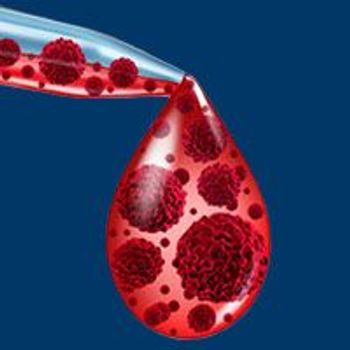
The combination of magrolimab, rituximab, gemcitabine, and oxaliplatin produced deep, durable responses in patients with relapsed or refractory diffuse large B-cell lymphoma.

The evolving treatment landscape across breast cancer has escalated the need for the accuracy of sentinel lymph node biopsies following treatment with neoadjuvant chemotherapy to correctly inform subsequent treatment decisions for patients.

The addition of the novel bispecific antibody CTX-009 to paclitaxel showed promising efficacy in the second- and third-line settings for patients with advanced biliary tract cancer.

David Siegel, MD, PhD, discusses the evaluation of idecabtagene vicleucel in cohort 2C of the KarMMa-2 trial and what these data could mean for this population and others with multiple myeloma.

Craig Sauter, MD, discusses the rationale for investigating maintenance pembrolizumab following autologous stem cell transplant in patients with T-cell NHL and explained some of the potential challenges of investigating this regimen in a larger prospective trial in this patient population.

IK-175 was found to be well tolerated in patients with advanced solid tumors and to elicit responses in those with urothelial cancer when used alone or in combination with nivolumab, according to initial data from an ongoing phase 1a/b study.

Virginia F. Borges, MD, MMSc, and colleagues highlight updates across the breast cancer landscape, including key updates from the 2022 SABCS.

Axicabtagene ciloleucel continued to elicit improved progression-free survival and overall response rates in patients with relapsed/refractory indolent non-Hodgkin lymphoma.
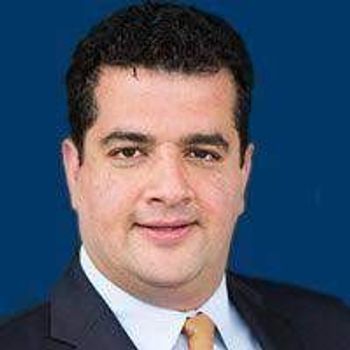
Patients with B-cell malignancies who were intolerant to acalabrutinib experienced a longer treatment duration when subsequently receiving zanubrutinib.
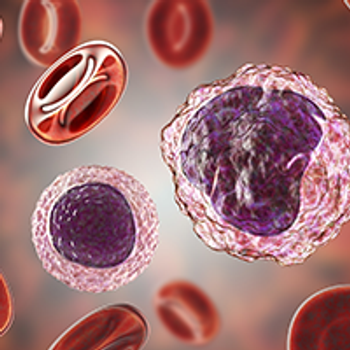
First-line treatment with zanubrutinib plus rituximab followed by short-course rituximab plus dexamethasone, high-dose cytarabine, and oxaliplatin elicited responses in patients with mantle cell lymphoma, according to preliminary results from the phase 2 CHESS trial.

A doublet comprised of the bispecific innate cell engager AFM24 and atezolizumab had a tolerable safety profile and elicited responses in patients with advanced EGFR-expressing solid tumors.

Emma Searle, PhD, provides an overview of findings from the MajesTEC-2 trial in patients with relapsed/refractory multiple myeloma, elaborates on the safety of teclistamab plus daratumumab and lenalidomide, and discusses the next steps for evaluating the combination.
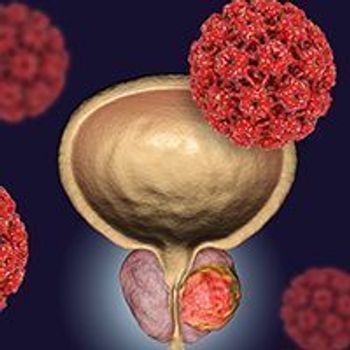
The use of peptide receptor radionuclide therapy with lutetium Lu 177 dotatate improved progression-free survival in patients with unresectable, progressive neuroendocrine pancreatic tumors.

A triplet regimen comprised of COM701, BMS-986207, and nivolumab was found to have encouraging antitumor activity and favorable tolerability in patients with heavily pretreated, platinum-resistant ovarian cancer.
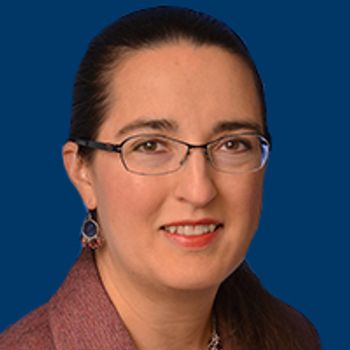
The utilization of the anti-CD40 agonist, CDX-1140, in combination with pembrolizumab was generally well tolerated and demonstrated preliminary efficacy in patients with anti–PD-1/PD-L1 resistant, locally advanced or metastatic solid tumors.
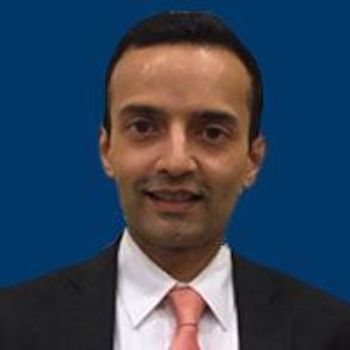
Ajai Chari, MD, shares some background on talquetamab, reported safety and efficacy findings from MonumenTAL-1, and highlighted other ways in which the agent is being explored in multiple myeloma.
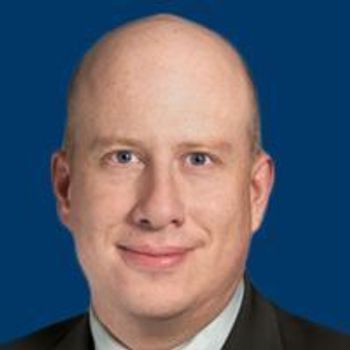
Alexander Spira, MD, PhD, FACP, highlights the top advancements across non–small cell lung cancer in 2022, emphasized the need for increased genetic testing to inform treatment decisions, and previewed other agents under development.